Participants
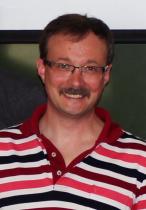
Dr. Grigorii Akhmanov
Chief Scientist of the project; Associate professor of Faculty of Geology, Moscow State University; Director of UNESCO-MSU Training and Research Centre for Marine Geology; Head of UNESCO Chair for Marine Geology
Both educated as and at heart I am marine geologist, sedimentologist. My major area of expertise is modern processes, which occurs in the subbottom sediment layers in oceanic or lacustrine environments. Generally speaking, exactly such processes have been forming in the past and are forming nowadays the face of our Planet. The most people do not think about their significance, but they are undoubtedly affecting and will always affect all spheres of human activities, despite the fact that a man is “a terrestrial creature”
The main task of mine during the expedition will be guidance and coordination of all participants and all onboard activities. The expedition will be focused onto many targets. But an educational point of the expedition is probably the most important. This will be a student expedition and it will be based on the principle, which was embedded into educational practice 20 years ago by Floating University of Lomonosov Moscow State University. The principle is “Training-through-Research”.
The Baikal Lake is considered to be a natural laboratory - this is very important fact in the context of our program. Almost everything interesting for marine geologist can be found in the Baikal, just in lesser scales. During even such a short expedition we will be able to show to our students how diverse and wonderful our nature is.
The scientific party of the expedition includes many students and will aims at the study of the nature of gas, water and rock material, rising from the depths to the surface in the anomalous zones at the bottom of the lake. This is, first of all, a known mud volcano. The particular interest will present also natural phenomena (formation of new minerals, special biocenoses, etc), which are typical for such an anomalous zone and do not occur in a more “calm” conditions. Other object to be studies during the expedition will be the large slide body slumped down from the flank of the Baikal depression. We will try to understand age and cause of its formation.
I have been dealing with sea and students for more than 20 years. In the framework of the UNESCO-MSU “Training-through-Research (Floating University)” (TTR) International program I participated and took a part in organization of about 20 marine expeditions in the Black and Mediterranean seas, in the North Atlantic and the Arctic. This program became a very good start to professional life for many scientists, who nowadays successfully work on cutting-edge frontiers of Marine Geology. We have done a lot but the TTR has never been cruising yet on the Baikal Lake.
I, personally, have been shortly on the Baikal coast when I was a school-boy, it was in 1988. I felt in love in this place and I have always dreamed to come back. I am happy that dreams come true. So now I expect this trip to bring a good mood, energy, new ideas and discoveries. I want the participants and especially students enjoy this trip. I want good friendly and partner relationship to be established between different participating organizations. I want the trip to have a positive resonance and to find a positive response of administration and sponsors. I dream that such expeditions become a good tradition.
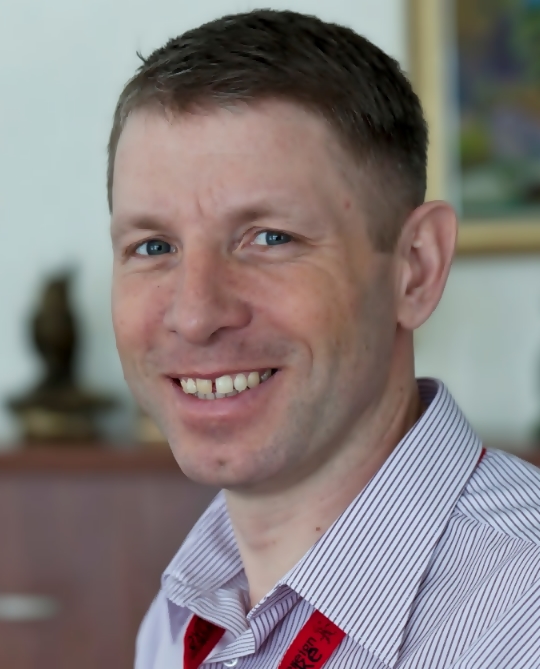
Oleg Khlystov
Co-Chief Scientist of the expedition; Head of Laboratory of Geology of Lake Baikal (Limnological Institute SB RAS, Irkutsk)
I am educated as mining engineer, geologist, but on permanent basis I work only at the Baikal Lake, and submarine structures and bottom sediments of this lake were most often the objects of my studies. That is the reason why marine geology, lithology of bottom sediments, gas hydrates and the history of the lake evolution are within the area of my scientific interests.
During the expedition, in addition to coordination of works of the crew, scientists of LIN SB RAS and MSU and training for students of this trip, I am going to continue geological and geophysical study of structures related to seismicity of the region and Baikal fluid discharging.
I will study an origin and plan to start monitoring of mud volcano: we will focus on bottom sediments around the Novosibirsk mud volcano. It is also planned to sample gas hydrates and to perform in-situ temperature measurements down to 3 m below the lake bottom. All this is necessary for making geological scheme of the mud volcano and gas hydrates distribution and also for monitoring volcano activity in present and past times. The geological mapping of the large slump structure in the central depression of the lake is going to be done for the first time ever. We are going to sample the uppermost 3 m of the subbottom sediment section. The bottom sampling sites will be chosen on the base of previously obtained seismo-acoustic data. The study of composition and structure of the deposits of this part of the lake will be carried out in details. Hopefully, it helps us to understand the nature of the slump.
I look forward to seeing the start of a new stage in geological investigations of sedimentary infill of the Baikal depression and I expect that we can continue the glorious “Floating University” program, that we will be able to establish new inter-institutional links. I also would like to see that this expedition will attract a public attention to the Baikal Lake and will bring new discoveries in its studying.
There are a lot of mysteries to be revealed on the Baikal. So, no time for a rest ! But still, during the expedition everyone can enjoy its sunrises early in the morning and sunsets late in the evening if the weather is good. Unforgettable impressions!

Stepan Vodopianov
Biological team of the expedition; Scientific assistant of Invertebrate Zoology Department of Faculty of Biology, Moscow State University
I haven’t been on Baikal before, but I’ve been dreaming to get there since my childhood, to see all its beauty and greatness. I will be collecting all accessible biological material, washing and sieving sediments, especially the uppermost part of every core obtained during the cruise. I hope to gather animals and bacterium, which live in very specific conditions, such as areas of methane seepages and oil leaking at the Baikal bottom. The goal is to determine the type of these animals and bacterium, their organization (how their skin and digestive system are constructed), any peculiarities of their organism which allow them living in such unusual conditions. Also there is a hope to collect alive samples of bacterial community from oil-saturated sediment for a microbiological laboratory, where it is planned to incubate these bacterium and to study the way they consume oil.
I participated in the previous (18th) cruise of the Floating University in the framework of the “Training-through-research” programme in the Barents sea. And that was the only my long (about a month) scientific expedition so far.
I think that Baikal is well studied by biologists, but, definitely, it keeps something still unexplored. I look forward to feeling that such a special place affects any person. I might come back being altered. I expect a good, dedicated team, an enthusiasm of study and, if there will be some free time, I hope to discuss a lot with other participants about everything.

Anastasia Fokina
Geochemical team of the expedition; MSc student of the Department of Petroleum Geology and Geochemistry, Faculty of Geology, Moscow State University
The main scientific interest of mine is geochemistry of hydrocarbon gas and during the cruise I will be taking a part in bottom sampling of sediments, hydrocarbon gases, fauna, in degassing of sediments and in their descripting. The goal of my further research is geochemical studying of hydrocarbon gases from bottom sediments with succeeding identification of gas anomalies and definition of the origin of collected fluids.
I am happened to be a participant of 18th cruise of Floating University (TTR-18) in 2011 (the southern part of the Barents Sea) and also I participated in two relatively short cruises, which were organized by Tromse University (Norway) in 2013 (the western and central parts of the Barents Sea).
The brightest impressions of mine are connected with marine expeditions. To say the truth I was only in the expeditions to the Arctic, but obtained emotions will stay with me for all my life! Such cruises make stronger and develop a spirit of team, provoking an interest to Science, teach a work in unusual conditions, allow to learn better yourself and your colleagues. Scientific expeditions are unique by their nature, because new areas are in exploration and this leads to scientific discoveries, so a feeling of being part of this is priceless.
Before this expedition I have seen the Baikal only from a train window and now I see the Baikal to be a very interesting object for gas-geochemistry studies. I plan to work hard and to get new data, which are interesting for me to be compared with the results obtained in the Barents Sea. From this cruise I expect harmonious and interesting work onboard, unique materials, scientific discoveries, and a lot of positive feelings.
I have been a professional gymnast before the beginning of the scientific career, but after the first cruise to the Barents Sea the sport became mainly a hobby for me. If to suppose that there will be a free time during the cruise I plan to help with a work to those who need it, to talk with colleagues, to enjoy Baikal, to take sun baths and to take photos.

Anna Yurchenko
Geochemical team of the expedition; PhD student of the Department of Petroleum Geology and Geochemistry, Faculty of Geology, Moscow State University
An orbit of my interests is organic geochemistry, especially study of specific biochemical processes of re-working of hydrocarbons by microorganisms both in recent marine sediments and in paleo-sediments.
During the cruise I will be taking a part in bottom sampling, in extraction of free gas out of sediments for consecutive study of sediments, clasts and hydrocarbon gases in MSU laboratories. Integrated geology-geophysical and geochemical studies allow better understanding recent processes and environments of the Baikal Lake. We plan to study petroleum systems, modern hydrocarbon activity and its impact on the lake ecosystem.
I have been in marine expeditions before, where I dealt with the similar complex of investigations. Particularity of this cruise is a work in fresh waters where the same processes pass in absolutely different environments.
Until now, so far, I have participated in the cruises in Barents and Black Seas. I haven’t been at the Baikal Lake before, but I’ve have always been dreaming to get there, that is why I expect unusual impressions from visiting Baikal as being in one of the most beautiful and magic place in the World. You can get there not only scientific data but also a charge of energy and power. From the expedition I expect unique scientific materials.
Any free minute during the cruise I am going to work on my PhD thesis

Dina Gilyazetdinova
Geological team of the expedition; MSc student of the Department of Petroleum Geology and Geochemistry, Faculty of Geology, Moscow State University
My scientific interests are petroleum and marine geology and micro-tomography, so during the cruise I will deal with description of sediment lithology, with their further analysis.
In the summer 2013 I took a part in similar cruise together with the students from the Tromse University, but in the Barents Sea.
I hope to get a lot of good emotions, knowledge and unforgettable impressions. I look forward to seeing a wonderful natural beauty of the deepest lake of the Earth - the Baikal Lake.
If there will be a free time I want to take photos of the beautiful Baikal, to socialize with all the participants of the cruise.

Mikhail Tokarev
Co-chief Scientist of the cruise; Geophysical team; Assistant professor of the Department of Seismometry and Geoacoustics, Faculty of Geology, Moscow State University; Director of Centre for Seismic Data Analysis of Lomonosov Moscow State University

Dr. Anatoliy Starovoitov
Geophysical team of the expedition; Associate professor of the Department of Seismometry and Geoacoustics, Faculty of Geology, Moscow State University

Dr. Dmitry Korost
Geological team of the expedition; Senior Researcher of UNESCO-MSU Training and Research Centre for Marine Geology and Geophysics, Faculty of Geology, Moscow State University
I am educated as an oil geologist. During my first on-the-job internship, when the destiny introduced me into the Floating University family, the marine geology appeared in my life. When not in the cruises, I deal with petrophysical investigations. Thus, my scientific life lays between sea and laboratory.
During the forthcoming cruise I will be taking a part in bottom sampling work team: it includes describing of sediments, sub-sampling etc. Besides, I will try to be the most helpful in work organization and assistance to young marine geologists. The Baikal is an unique natural system - all the objects, which I was exploring being a participant of previous Floating University cruises, are concentrated in small region in comparison to vast ocean.
For a little more than two weeks we are going to work at mud volcanos, to explore the nature of large submarine slumps, to discovery for ourselves gas hydrates of the Baikal. What is more important, such a geological variety will become not only a field for scientific researches, but also a perfect educational material for students.
More than ten years ago I was in my first cruise. Since that time I happened not to miss any single cruise of the Floating University. For these years I worked in the Atlantic, the Mediterranean and Black Seas, the previous cruise was in the Arctic. So now I am going to the Baikal. I hope that the Baikal expedition, as traditional for TTR cruises, will cause not only new scientific data, but also new friends. I wish this cruise will become the beginning of new great sails of the Floating University. I love music. Absolutely different music. Another my hobby is sport - I hope that I will be able to watch FIFA games onboard. By my experience the biggest value in such cruises is people. So I will socialize with them.
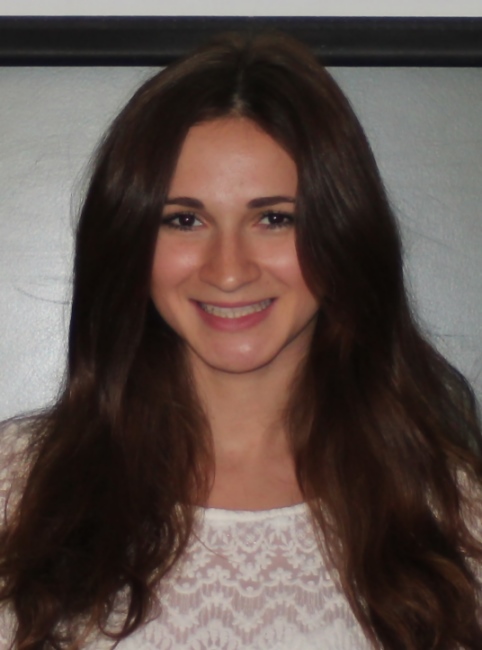
Olesya Vidisheva
Geochemical team of the expedition; Undergraduate Student of the Department of Petroleum Geology and Geochemistry, Faculty of Geology, Moscow State University

Ildar Mullabaev
Geological team of the expedition; Undergraduate Student of the Department of Lithology and Marine Geology, Faculty of Geology, Moscow State University
My scientific interests are lithology and marine geology.
During the cruise I will be busy with lithological description of sediments and further analyses.
It is very interesting to see the Baikal, because it is the deepest lake on the Earth and the biggest reservoir of fresh water.
It is my first cruise. So I expect to get unforgettable impressions and useful knowledge.
At free time I will take photos of the Baikal nature and socialize with other participants and, if there will be an opportunity, I would like to watch FIFA.

Andrey Potemka
Geophysical team of the expedition; MSc student of the Department of Seismometry and Geoacoustics, Faculty of Geology, Moscow State University

Oleg Belousov
Geological team of the expedition; Researcher of Laboratory of Geology of the Baikal. Limnological Institute SB RAS, Irkutsk
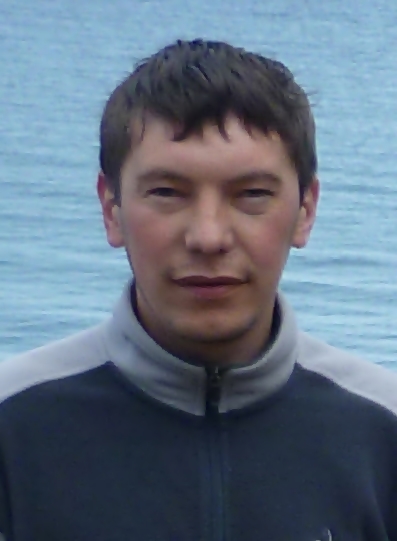
Andrey Habuev
Geological team of the expedition; Researcher of Laboratory of Geology of the Baikal. Limnological Institute SB RAS, Irkutsk

Dr. Adriano Mazzini
Geological team of the expedition; Senior Researcher of Center of the Earth Evolution and Dynamic, Oslo University, Norway

Dr. Jeffrey Port
Geological team of the expedition; Senior Researcher of Pierre and Mary Curie Paris University, France
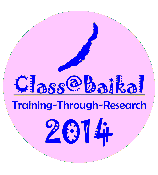
Natalia Shatilova
Geophysical team of the expedition; LLC “Centre for Seismic Data Analysis of Lomonosov Moscow State University”

Svetlana Bubnova
Media-group of the expedition

Konstantin Abrosimov
Media-group of the expedition

Dr. Leonid Kulnitzkiy
Geophysical team of the expedition; LLC “Centre for Seismic Data Analysis of Lomonosov Moscow State University”

Marina Solovieva
Geophysical team of the expedition; MSc student of the Department of Seismometry and Geoacoustics, Faculty of Geology, Moscow State University

Roman Isaenkov
Geophysical team of the expedition; MSc student of the Department of Seismometry and Geoacoustics, Faculty of Geology, Moscow State University

Dmitry Denisov
Geophysical team of the expedition; JSC “N.N. Andreyev Acoustic Institute”